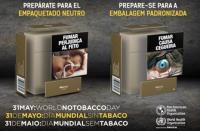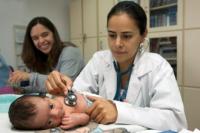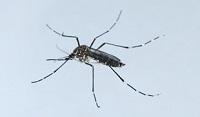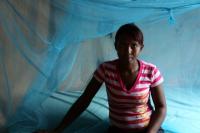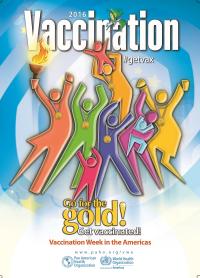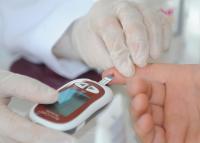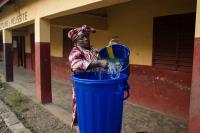You are here
News
-
05/19/2016 - "Calling all superheroes. This is not a drill. Our communities have been invaded by dangerous mosquitoes and we need help." With those words, Cartoon Network Latin America is launching "Mission Zika," an educational campaign to raise awareness about Zika in Latin America, using Public Service Announcements that raise awareness about Zika and means of prevention.
-
05/19/2016 - A number of countries of the Americas have made progress in implementing tobacco control policies designed to reduce suffering and death due to tobacco. Yet much remains to be done to halt the spread of a product that kills approximately a million people per year in the Region.
-
05/13/2016 - On the anniversary of Florence Nightingale's birth, May 12, the Pan American Health Organization/World Health Organization (PAHO/WHO) is observing International Nurses Day this year by calling on its member countries to transform nursing education as part of their efforts to advance toward universal health.
-
05/13/2016 - More than 80% of people living in urban areas that monitor air pollution are exposed to air quality levels that exceed the World Health Organization (WHO) limits. While all regions of the world are affected, populations in low-income cities are the most impacted.
-
05/13/2016 - The World Health Organization (WHO) and the Pan American Health Organization (PAHO) recognize that athletes and visitors are seeking more information on the risks of Zika and ways to prevent infection while attending the 2016 Rio Olympic and Paralympic Games (5 August to 18 September 2016).
-
05/10/2016 - The House of Representatives approved the text of the headquarters agreement between Brazil and UNASUR, signed in Asuncion in 2012, for the operation of the ISAGS. The project still must be voted in the Senate.
-
04/28/2016 - Malaria initiatives that demonstrate concrete technical and programmatic changes geared towards malaria elimination and the prevention of its re-establishment are eligible to compete in this year's "Malaria Champions of the Americas" contest, which gets under way on World Malaria Day, April 25. The nomination deadline is June 20.
-
04/25/2016 - Countries and territories throughout the Western Hemisphere will reach out to some 60 million children and adults during this year's Vaccination Week in the Americas, April 23-30, delivering vaccines against diseases including rubella, measles, diphtheria, mumps, whooping cough, neonatal tetanus, influenza, yellow fever, diarrhea caused by rotavirus, bacterial pneumonia, and human papilloma virus (HPV), among others.
-
04/07/2016 - One in 12 inhabitants—some 62 million people—live with diabetes in the Americas. The number has tripled since 1980, and diabetes is currently the fourth-leading cause of death in the hemisphere following heart attacks, strokes and dementias. If current trends continue, experts estimate that nearly 110 million people in the region will have diabetes by 2040.
-
03/31/2016 - The United Nations World Health Organization (WHO) today said West Africa's Ebola outbreak no longer constitutes an international public health threat, declaring that the 20-month global emergency response is over but stressing that a “high level of vigilance” must be maintained.


